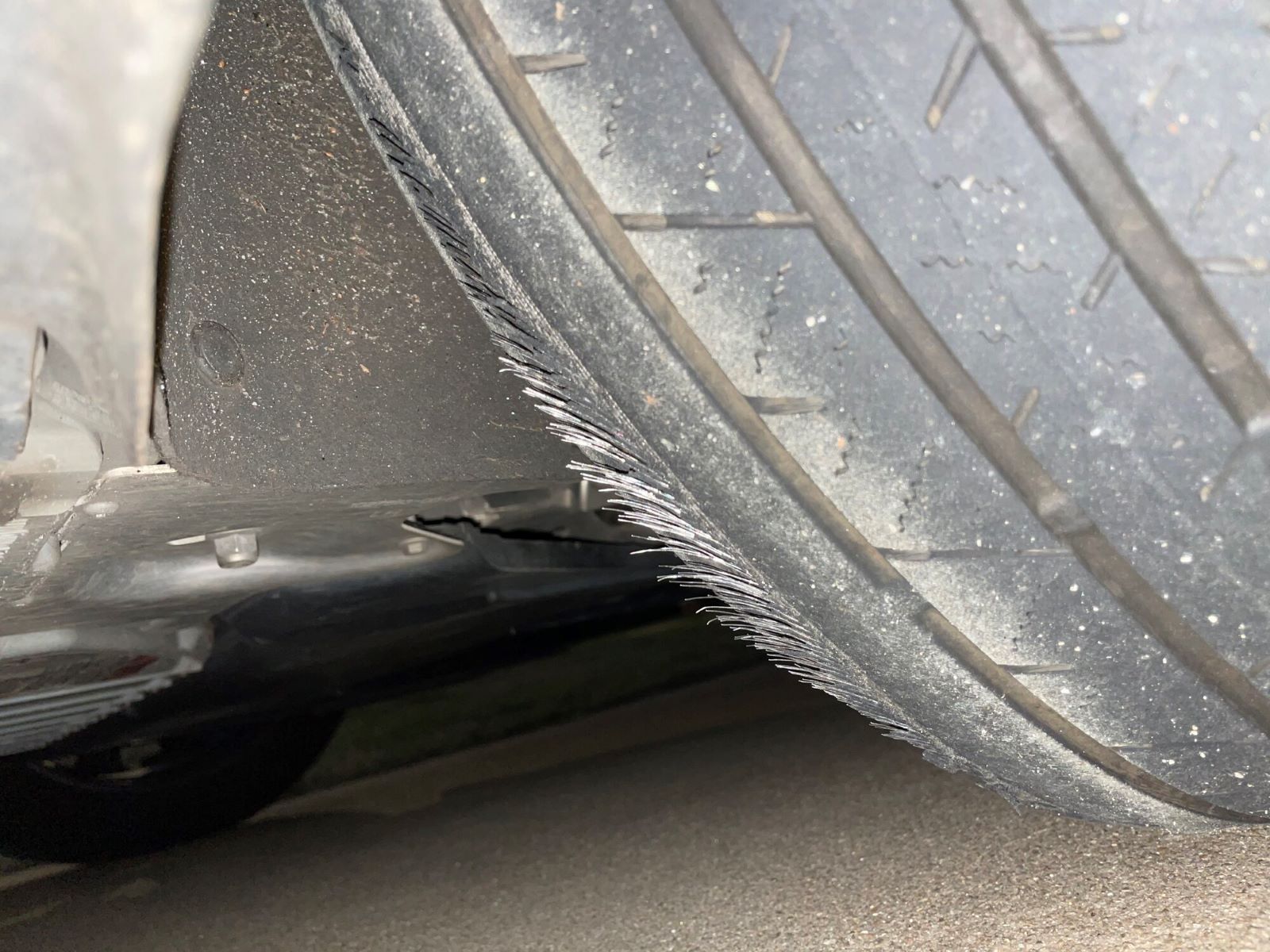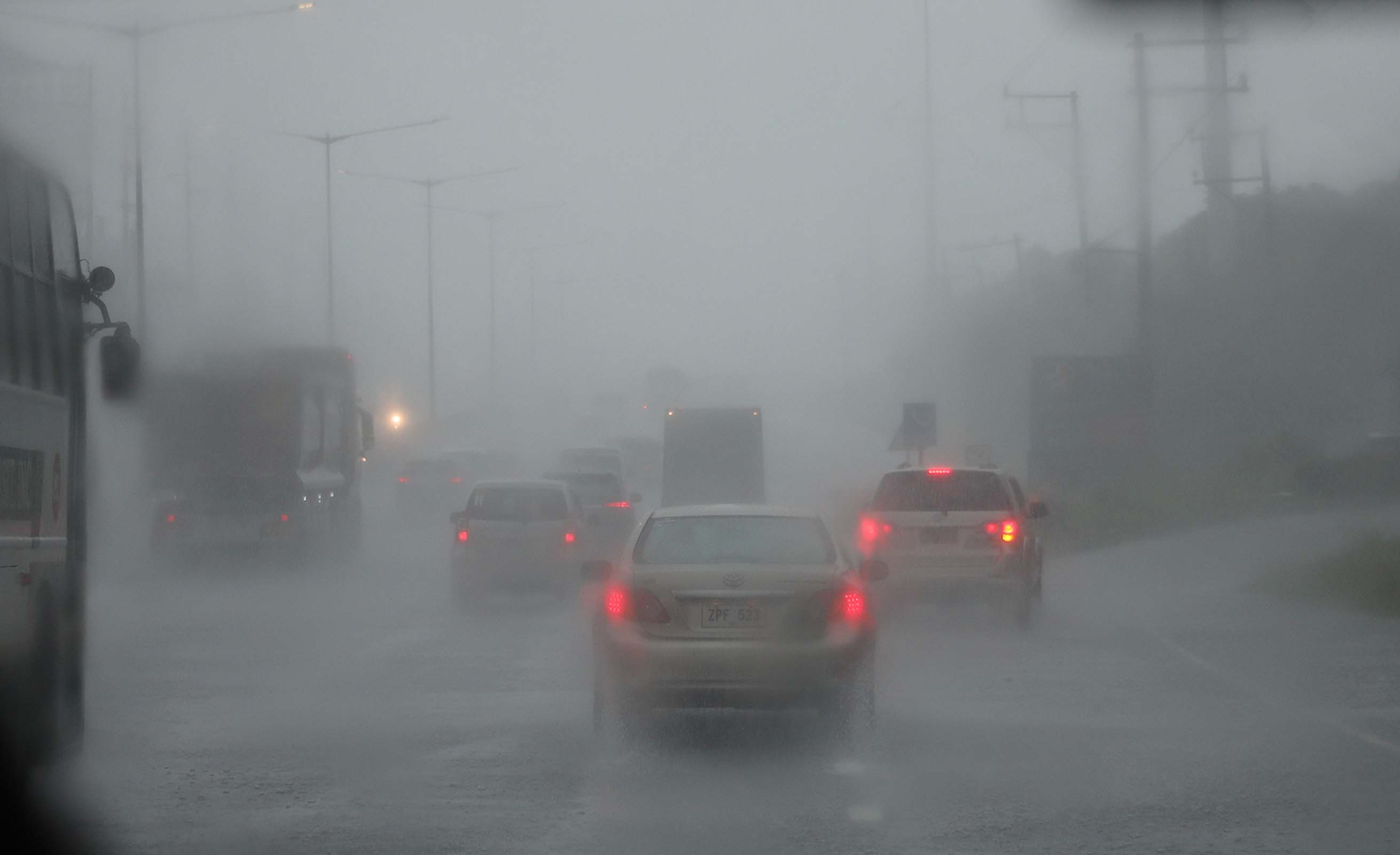Home>Law and Legal Advice>Shocking Consequences Of Driving Without A License In California


Law and Legal Advice
Shocking Consequences Of Driving Without A License In California
Published: February 4, 2024
Learn about the severe legal repercussions of driving without a license in California. Get expert law and legal advice to avoid serious consequences.
(Many of the links in this article redirect to a specific reviewed product. Your purchase of these products through affiliate links helps to generate commission for Regretless.com, at no extra cost. Learn more)
Table of Contents
Introduction
Driving without a license in California may seem like a minor infraction, but the repercussions can be severe and far-reaching. It's a scenario that can lead to a series of legal, financial, and personal challenges. In this article, we'll delve into the shocking consequences of driving without a license in California, shedding light on the potential legal ramifications, financial penalties, and the impact it can have on one's driving record and overall well-being. Understanding these consequences is crucial for anyone navigating the complex landscape of California's traffic laws, as it can help individuals make informed decisions and avoid the pitfalls associated with driving without a valid license. Let's explore the eye-opening realities that individuals may face when they choose to operate a vehicle without the proper legal documentation.
Legal Consequences
Driving without a license in California carries significant legal consequences that can have lasting implications. The state's laws mandate that all drivers must possess a valid license to operate a motor vehicle. When this requirement is disregarded, individuals open themselves up to a range of legal issues. If caught driving without a valid license, the individual may face charges and subsequent legal proceedings.
One of the primary legal consequences of driving without a license is the possibility of receiving a citation or being arrested. Law enforcement officers have the authority to pull over and cite individuals who are found driving without a valid license. Depending on the circumstances, the individual may be issued a citation and required to appear in court. In more serious cases, such as repeat offenses or driving with a suspended or revoked license, the individual may face arrest and criminal charges.
Additionally, driving without a license can result in the imposition of fines and fees. The specific penalties can vary based on the circumstances of the offense and any prior infractions. These financial repercussions can place a significant burden on the individual, potentially leading to economic strain and hardship.
Furthermore, individuals caught driving without a license may be required to attend court hearings and legal proceedings, consuming valuable time and resources. This can disrupt their daily lives and lead to additional stress and anxiety. Moreover, if the individual fails to address the legal consequences, it can result in further complications, including the suspension of driving privileges and the issuance of warrants for their arrest.
In summary, the legal consequences of driving without a license in California are substantial and should not be underestimated. It is crucial for individuals to understand and adhere to the state's laws regarding driver's licenses to avoid the legal pitfalls associated with non-compliance. By recognizing the potential legal ramifications, individuals can make informed decisions and take proactive steps to ensure compliance with California's driving regulations.
Financial Penalties
Driving without a license in California can lead to significant financial penalties that can have lasting repercussions on an individual's financial well-being. When an individual chooses to operate a motor vehicle without a valid driver's license, they expose themselves to a range of financial consequences that can create substantial economic strain.
One of the primary financial penalties associated with driving without a license is the imposition of fines and fees. In California, the specific fines for driving without a license can vary based on the circumstances of the offense and any prior infractions. These fines can range from hundreds to thousands of dollars, depending on the severity of the violation and any extenuating factors. For many individuals, the financial burden of these fines can be overwhelming, potentially leading to financial hardship and distress.
In addition to fines, individuals caught driving without a license may also face additional financial penalties, such as court costs and administrative fees. These expenses can quickly accumulate, further exacerbating the financial impact of the offense. Moreover, if the individual is required to attend court hearings or legal proceedings, they may incur additional costs associated with legal representation and other related expenses.
Furthermore, driving without a license can result in increased insurance premiums. When an individual is cited for driving without a license, it can signal to insurance providers that they pose a higher risk, potentially leading to an increase in insurance rates. These elevated premiums can place a significant strain on the individual's finances, making it more challenging to afford essential coverage.
Moreover, if the individual fails to address the legal consequences of driving without a license, it can result in the suspension of their driving privileges. In such cases, the individual may be required to pay reinstatement fees to regain their driving privileges, adding to the overall financial burden of the offense.
In summary, the financial penalties associated with driving without a license in California are substantial and can have far-reaching implications. Individuals caught driving without a valid license may face fines, court costs, increased insurance premiums, and potential reinstatement fees. Understanding these financial consequences is essential for anyone navigating California's traffic laws, as it can help individuals make informed decisions and take proactive steps to mitigate the financial impact of non-compliance.
Potential Jail Time
Driving without a license in California can lead to potential jail time, adding a significant layer of severity to the consequences of this offense. While the likelihood of incarceration for a first-time offense of driving without a license is relatively low, repeat offenses or aggravating circumstances can elevate the risk of facing jail time.
In California, driving without a valid license is considered a misdemeanor, and individuals caught committing this offense may be subject to penalties that include incarceration. The duration of potential jail time can vary based on factors such as prior convictions, the reason for driving without a license, and any additional violations or infractions at the time of the offense.
For a first offense of driving without a license, an individual may face up to six months in jail. However, it's important to note that the actual duration of incarceration can be influenced by various factors, including the individual's cooperation with law enforcement, their conduct during the traffic stop, and any mitigating circumstances that may be presented in court.
In cases where an individual has a history of driving without a license or has committed other traffic-related offenses, the likelihood of facing jail time increases. Repeat offenders may encounter stiffer penalties, including longer periods of incarceration, as the judicial system aims to address patterns of non-compliance and prioritize public safety.
Furthermore, if an individual is caught driving without a license and is found to have a suspended or revoked license due to prior infractions, the risk of facing jail time becomes more pronounced. Driving with a suspended or revoked license is a more serious offense, and the associated penalties, including potential jail time, reflect the gravity of the violation.
It's essential for individuals to recognize that the potential for jail time underscores the serious nature of driving without a license in California. The threat of incarceration serves as a stark reminder of the legal and personal implications of disregarding the state's driver's license requirements. By understanding the potential consequences, individuals can make informed decisions and take proactive steps to ensure compliance with California's traffic laws, thereby avoiding the risk of facing jail time due to this offense.
Impact on Driving Record
Driving without a license in California can have a significant impact on an individual's driving record, carrying repercussions that can extend beyond the immediate legal and financial consequences. A driving record serves as a comprehensive documentation of an individual's history of traffic violations, accidents, and license status. When an individual is caught driving without a valid license, it can result in adverse effects on their driving record, potentially leading to long-term implications.
One of the primary impacts on an individual's driving record is the accumulation of points. In California, driving without a license is considered a traffic violation, and if cited for this offense, the individual may incur points on their driving record. These points can have implications for the individual's driving privileges and insurance rates. The accumulation of points can lead to increased insurance premiums and, in some cases, the suspension of driving privileges. Furthermore, points on a driving record can signal to insurance providers that the individual poses a higher risk, potentially resulting in elevated insurance premiums that can be financially burdensome.
Moreover, a citation for driving without a license can tarnish an individual's driving record, creating a blemish that may impact their ability to secure employment or obtain certain professional licenses. Employers and licensing agencies often review an individual's driving record as part of background checks, and a history of traffic violations, including driving without a license, can raise red flags and create barriers to opportunities.
Additionally, a citation for driving without a license can remain on an individual's driving record for an extended period, potentially affecting their ability to obtain a valid license in the future. When applying for a driver's license or seeking to reinstate a suspended or revoked license, individuals are required to disclose their driving history, including any prior citations or violations. A history of driving without a license can complicate these processes, leading to delays and additional hurdles in obtaining a valid license.
In summary, the impact of driving without a license on an individual's driving record is multifaceted and can have enduring consequences. It can result in the accumulation of points, increased insurance premiums, potential barriers to employment and professional opportunities, and challenges in obtaining or reinstating a valid license. Understanding these implications is crucial for individuals navigating California's traffic laws, as it underscores the importance of compliance with driver's license requirements to safeguard their driving record and long-term prospects.
Vehicle Impoundment
Vehicle impoundment is a significant consequence that individuals may face when caught driving without a license in California. This penalty involves the temporary seizure and storage of the vehicle by law enforcement authorities, adding another layer of severity to the repercussions of this offense.
When an individual is found driving without a valid license, law enforcement officers have the authority to impound the vehicle. The duration of the impoundment can vary based on the specific circumstances of the offense and any prior infractions. In many cases, the vehicle may be impounded for a specified period, during which the owner is responsible for covering the associated impound fees and storage costs. These expenses can quickly accumulate, adding to the financial burden imposed on the individual.
The impoundment of a vehicle can significantly disrupt the individual's daily life and mobility. It can lead to inconvenience, logistical challenges, and the need to secure alternative transportation during the period of impoundment. Moreover, the costs associated with retrieving the impounded vehicle, including towing fees and storage charges, can place a considerable strain on the individual's finances.
Furthermore, the impoundment of a vehicle can have implications for the vehicle owner beyond the immediate inconvenience and financial burden. It can tarnish the individual's driving record and potentially affect their ability to obtain or maintain auto insurance. Additionally, the impoundment of a vehicle can result in damage or wear and tear during the storage period, leading to additional costs and logistical complications for the owner.
In cases where an individual is unable to retrieve the impounded vehicle within the designated timeframe, it can result in further complications, such as the accrual of additional fees and the potential for the vehicle to be sold at auction. These outcomes can exacerbate the financial impact of the offense and create long-term challenges for the individual.
In summary, vehicle impoundment is a significant consequence of driving without a license in California, carrying both immediate and enduring implications. It can lead to financial strain, logistical challenges, and disruptions to the individual's daily life. Understanding the potential for vehicle impoundment underscores the gravity of this offense and the importance of compliance with California's driver's license requirements to avoid the severe repercussions associated with non-compliance.
Increased Insurance Rates
Driving without a license in California can result in increased insurance rates, adding a substantial financial burden to individuals who are cited for this offense. When an individual is caught driving without a valid license, it can signal to insurance providers that they pose a higher risk, leading to elevated insurance premiums.
Insurance companies assess risk factors when determining premiums for coverage. A history of traffic violations, including driving without a license, can categorize an individual as a high-risk driver, prompting insurance providers to adjust their rates accordingly. The increased insurance rates resulting from a citation for driving without a license can place a significant strain on the individual's finances, making it more challenging to afford essential coverage.
Moreover, the impact of increased insurance rates extends beyond the immediate financial repercussions. Elevated premiums can persist for an extended period, compounding the long-term financial implications of the offense. For many individuals, the burden of higher insurance rates can create ongoing financial strain, affecting their ability to maintain coverage and manage their overall expenses.
Furthermore, the consequences of increased insurance rates can extend to other aspects of the individual's financial well-being. A history of driving without a license can limit the individual's options when seeking insurance coverage, potentially leading to difficulties in securing affordable and comprehensive policies. This can leave the individual vulnerable in the event of accidents or unforeseen circumstances, further exacerbating the financial impact of non-compliance with driver's license requirements.
Understanding the potential for increased insurance rates is crucial for individuals navigating California's traffic laws. It underscores the enduring financial implications of driving without a license and highlights the importance of compliance with driver's license regulations to avoid the significant burden of elevated insurance premiums. By recognizing these consequences, individuals can make informed decisions and take proactive steps to mitigate the financial impact of non-compliance and safeguard their long-term financial well-being.
Conclusion
In conclusion, the shocking consequences of driving without a license in California are far-reaching and impactful, encompassing legal, financial, and personal ramifications. This offense can lead to legal proceedings, fines, and potential jail time, underscoring the serious nature of non-compliance with the state's driver's license requirements. Moreover, the financial penalties, including increased insurance rates and potential vehicle impoundment, can create enduring economic strain and logistical challenges for individuals caught driving without a valid license.
The impact on an individual's driving record, including the accumulation of points and potential barriers to employment and license reinstatement, further underscores the long-term implications of this offense. Understanding these consequences is essential for anyone navigating California's traffic laws, as it highlights the importance of compliance with driver's license regulations to avoid the severe repercussions associated with non-compliance.
Ultimately, the shocking consequences of driving without a license in California serve as a stark reminder of the legal and personal implications of disregarding the state's driver's license requirements. By recognizing these repercussions, individuals can make informed decisions and take proactive steps to ensure compliance with California's driving regulations, safeguarding their well-being and avoiding the pitfalls associated with driving without a valid license.
It is imperative for individuals to prioritize adherence to driver's license requirements, as doing so not only mitigates the risk of facing the shocking consequences outlined in this article but also promotes a culture of responsible and lawful driving. By upholding the legal and regulatory standards pertaining to driver's licenses, individuals can contribute to safer roadways and a more secure driving environment for themselves and others.














